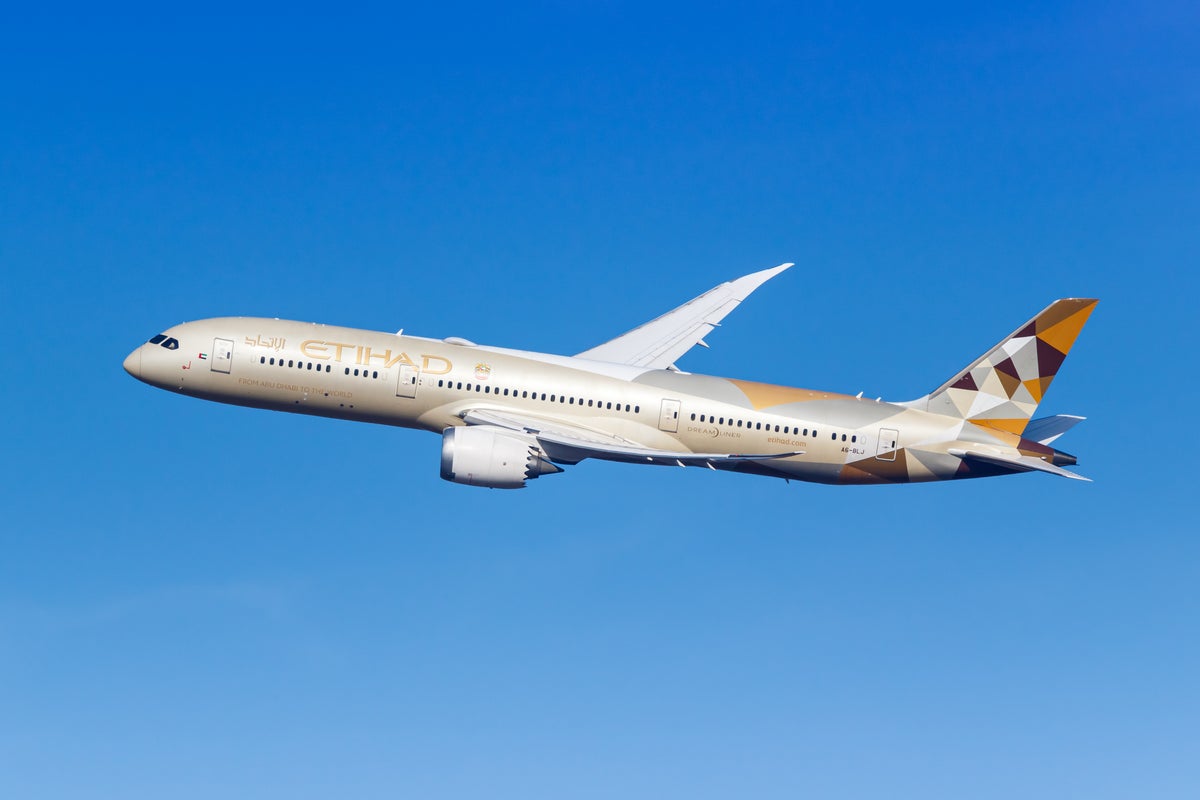An India-bound Boeing aircraft was forced to return to Abu Dhabi for fuel control switch checks amid ongoing investigations into the Air India crash.
Etihad Airways flight EY352, travelling from the UAE capital to Hyderabad, India, turned back to Abu Dhabi under an engineering work order mid-flight on Sunday (13 July), the Times of India reported.
The order to check the locking mechanism on fuel supply switches came shortly after a preliminary report by India’s Aircraft Accident Investigation Bureau (AAIB) was made public on Saturday.
According to FlightAware data, the Boeing 787-9 aircraft departed Abu Dhabi at 10pm local time before it was diverted to its departure airport.
The Etihad flight was one and a half hours into the almost four-hour journey to Rajiv Gandhi International Airport.
India’s Directorate General of Civil Aviation has ordered airlines to inspect the fuel switches on certain aircraft, including Boeing 787s and 737s, following the fatal Air India crash on 12 June.
The crash of flight AI171, a Boeing 787-8 headed to London Gatwick, killed 260 people.
The preliminary Air India report found that the fuel switches for the engines of the Air India jet, which crashed last month, almost simultaneously flipped to cutoff seconds after takeoff from Ahmedabad.
It said: “In the cockpit voice recording, one of the pilots is heard asking the other why did he cutoff? The other pilot responded that he did not do so.”
South Korea’s Transport Ministry introduced similar inspections of fuel switch locks for domestic airlines on Tuesday.
The UAE flag carrier airline said: “Etihad always ensures its maintenance is fully compliant,” in a statement to The Times.
The Federal Aviation Administration (FAA) has advised checks for a locking system failure in the fuel control on Boeing models since 2018, following complaints from pilots about faulty installations; however, these checks are not mandatory.
For this reason, the Air India crash preliminary report found the airline had not carried out the FAA’s suggested fuel switch inspections.
Significantly, the report says: “At this stage of investigation, there are no recommended actions to B787-8 and/or GE GEnx-1B engine operators and manufacturers.”
This suggests no evidence of a technical fault that might jeopardise similar aircraft.
The US FAA responded to growing concerns by insisting the fuel switch used on the aircraft was safe.
Air India announced on Tuesday (15 July) the “partial restoration” of flight schedules that had been reduced during a “safety pause” following the tragic accident.
For more travel news and advice, listen to Simon Calder’s podcast


